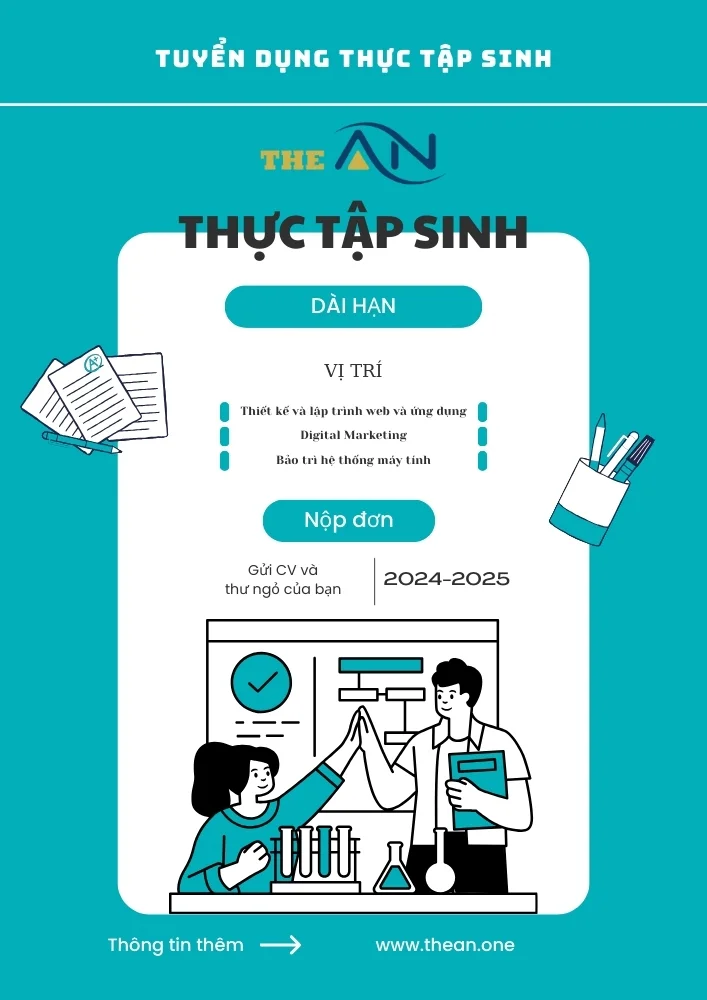Prefixes in English Grammar: Definition, Examples & How to use them?

In the English language, there are times when we come across a one-syllable or a group of letters being added to a base word to alter its meaning. For example, let us then consider the word “possible”. Adding the letters “im-” before it creates a new word called impossible which means the opposite of possible.
Such types of syllables or groups of letters (im-) are called prefixes and they play a key role in English grammar. Knowledge of prefixes helps enhance vocabulary and comprehension.
Table of Content
- What is a Prefix in English?
- Definitions of a Prefix
- List of 35 Most Common Prefixes in English
- When to Use Prefixes?
- Prefixes Examples
- Writing Prefixes With Hyphens
- How to Learn Prefixes in English?
- Prefixes Exercises
What is a Prefix in English?
A prefix is a group of letters (sometimes a single letter) that is added at the start of a base word to alter its meaning. These letters are affixes. Affixes do not have any significance or meaning when used independently. They are either added before or afterward to create new words with new meanings. When affixes are added before a word, they are called prefixes and when they are added after a word, they are known as suffixes.
Example of a prefix: Use of the letters “hemi-” before the word ”sphere” to create a new word hemisphere which means half of a sphere.
Definitions of a Prefix
A prefix is “an affix attached to the beginning of a word, base, or phrase and serving to produce a derivative word or an inflectional form,” according to the Merriam-Webster Dictionary. According to the Collins Dictionary, a prefix is a letter or set of letters that are added to the beginning of a word to make a separate word, such as “un-” or “multi-.”
List of 35 Most Common Prefixes in English
Here are some of the most common prefixes list in English with their meanings and examples.
| Prefix | Meaning | Examples |
|---|---|---|
| Ambi- | Both and around | Ambidextrous, ambivalence, ambiguous, ambidexterity |
| Co- | Together | Coexist, correlation, colleague, co-worker |
| Anti- | Against | Anti-national, antibiotic, antibody, antisocial |
| Mono- | One | Monogamy, monotonous, monolingual, monologue |
| Semi- | Half | Semifinal, semicircle, semiautomatic, semiconscious |
| Sub- | Below | Subconscious, subtropical, submerge, subordinate |
| Un- | Opposite or not | Unacceptable, unabashed, unlike, unfair |
| Uni- | One | Universe, unilateral, unicycle, uniform |
| Under- | Not enough | Underage, underperform, undervalue, underrate |
| In- | Opposite or not | Insufficient, insane, independent, invalid |
| Bi- | Two | Bilingual, bicycle, biweekly, bilateral |
| Homo- | Same | Homogeneous, homogeny, homosexual, homonym |
| Contra- | Against or opposite | Contradict, contraceptive, contrary, contradictory |
| Dis- | Opposite or not | Dislike, disintegrate, dishonour, disappear |
| Em- | To make or put into | Empathy, empirical, emphasis, embankment |
| Hetero- | Different | Heterosexual, heterogeneous, heterogamous, heteronomous |
| Hind- | After or back | Hindsight, hindlimb, hindwing, hindquarters |
| Im- | Opposite or not | Immoral, impatient, impartial, imperfect |
| Inter- | Between | Interstate, international, intermediate, interaction |
| Mis- | Wrong | Miscommunication, miscalculate, misconception, misfortune |
| Trans- | Across or changed | Transform, translate, translucent, transgender |
| Tri- | Three | Triangle, tripod, trilingual, triathlon |
| Non- | Without | Nonsense, non-alcoholic, nonstop, non-fiction |
| On- | Near or connected | Onset, online, ongoing, onlooker |
| Pan- | All | Pandemic, pan-Indian, pansexual, pancreatic |
| Ped- | Foot | Pedicure, pedestrian, pedal, pedometer |
| Post- | After | Postpone, postseason, postgraduate, postnatal |
| Pre- | Before | Prepone, precaution, prejudice, premeditated |
| Pro- | Forward or for | Progress, product, promise, procrastinate |
| Re | Again | Research, repeat, rework, recycle |
| Sur- | Over | Surface, surcharge, surplus, surpass |
| Twi- | Two | Twin, twice, twi-headed |
| Ultra- | Beyond | Ultra-conservative, ultraviolet, ultrasound, ultrasonic |
| Extra- | More than | Extraterrestrial, extra-curricular, extramarital, extraordinary |
| Up- | Higher or better | Uphill, upgrade, update, upturned |
When to Use Prefixes?
Prefixes can be used for multiple purposes. One of the common uses of prefixes is to mean the opposite or negative of the base word. For example, using the prefix “un-” before necessary to create the word unnecessarily or using “dis-” before approving to form disapprove. Both the new words unnecessary and disapprove are the opposites of their base words respectively.
Prefixes are also used to reduce a sentence or a phrase to a single word without changing it. For example, instead of saying “He is showing way too much confidence than required”, we can simply say “He is overconfident”.
How to use prefixes
It is important to understand the way prefixes are used. It should be noted that while adding a prefix to a base word, there should not be a change in the spelling of either the base word or the prefix. For example: unkind (a combination of “un-” and “kind”). Even if it leads to double consonants, the same rule should be followed. Example: coordinate, irresponsible.
Certain rules need to be followed while using hyphens to join prefixes with words. This will be discussed in the next section.
Prefixes Examples
Some of the most common examples of Prefixes are:
- Unpopular
- Bicycle
- Misunderstanding
- Prepone
- Online
- Underage
- Coexist
- Pandemic
- Independent
- Extraordinary
Writing Prefixes With Hyphens
Use of hyphens in prefixes can be confusing as some prefixes use hyphens while some don’t. Also, there are certain prefixes which may or may not use prefixes based on their meanings. Let is take the case of the prefix “ex-“. There are two meanings of this prefix- “belonging to the past” and “out of/from”. When it means belonging to the past, hyphens are used (ex-husband, ex-president). When it means “out of/ from”, then hyphens are not required (exterritorial, exstipulate)
Hyphens are used when prefixes are added to proper nouns. Example: pro-Nazi, un-Indian, trans-Pacific.
Hyphens are required when the prefix ends with a vowel and the base word starts with the same vowel. Common examples include re-enter, semi-industrious, semi-independent. However, English is a language of exceptions and for some cases, if the vowel is “o” for both the prefix and the word, then the hyphen is not required. For example: coordinate, cooperate.
When the prefix ends with a vowel and the base word starts with a different vowel, hyphens are not required. For example: hydroelectricity, proactive, reactivate.
How to Learn Prefixes in English?
Prefixes are hidden in thousands of words and it is important to learn them to improve vocabulary skills. One of the best ways to learn prefixes is by creating a list of the most popular prefixes and studying them. Try to understand how they are used in a sentence to know them better.
Taking online tests, quizzes can also go a long way to help you get accustomed to prefixes. Sources of visual entertainments like movies, videos, tv series can also aid you to learn prefixes. Keep the subtitles on if it is difficult to understand and interpret the audio.
Prefixes Exercises
1. Put words in the blanks as per required.
She was ________. She started crying. (happy)
=> Unhappy
I think you should ________ the decision. The move will have big consequences. (consider)
=> Reconsider
Even though she is young, she is quite ________ (dependent)
=> Independent
All these quarrels have made him ________ among his peers. (popular)
=> Unpopular
2. Write prefixes that mean the Opposite of the following words
a) Agree - disagree
b) Correct - incorrect
c) Fold - unfold
d) Spell - misspell
e) Behave - misbehave
f) Connect - disconnect
g) Understand - misunderstand
Prefixes- FAQs
Prefix is a group of letters (sometimes a single letter) which is added at the start of a base word to alter its meaning.
Example of a prefix: Use of the letters “hemi-” before the word ”sphere” to create a new word hemisphere which means half of a sphere.
Prefixes work by getting added to a base word and changing the meaning of it. They are an integral part of the English language. They are always added before a word. Examples:
1. Please “postpone” the meeting.
2. The animals and birds “coexist” in an ecosystem.
3. She is “riding” a bicycle.
It is important to understand the way prefixes are used. It should be noted that while adding a prefix to a base word, there should not be a change in the spelling of either the base word or the prefix. For example: unkind (combination of “un-” and “kind”). Even if it leads to double consonants, the same rule should be followed. Example: coordinate, irresponsible.
There are also certain rules that need to be followed while using hyphen to join prefixes with words. Hyphens are used when prefixes are added to proper nouns. Example: pro-Nazi, un-Indian, trans-Pacific.
Hyphens are required when the prefix ends with a vowel and the base word starts with the same vowel. Common examples include re-enter, semi-industrious, semi-independent. However, English is a language of exceptions and for some cases, if the vowel is “o” for both the prefix and the word, then the hyphen is not required. For example: coordinate, cooperate.
When the prefix ends with a vowel and the base word starts with a different vowel, hyphens are not required. For example: hydroelectricity, proactive, reactivate.
One of the best ways to learn prefixes is by creating a list of the most popular prefixes and studying them.
Taking online tests, quizzes can also go a long way to help you get accustomed to prefixes. Sources of visual entertainments like movies, videos, tv series can also aid you to learn prefixes. Keep the subtitles on if it is difficult to understand and interpret the audio.
Prefixes have the following advantages:
- It can shorten a phrase into a single word. For example, instead of saying “He is showing way too much confidence than required”, we can simply say “He is overconfident”.
- They can be used to mean the opposite of any word. Example: use- misuse, correct- incorrect.
Quý anh/chị đang tìm kiếm một doanh nghiệp uy tín cung cấp dịch vụ Công Nghệ Thông Tin như Thiết kế và lập trình website, Digital Marketing, hoặc dịch vụ Bảo trì và chăm sóc hệ thống máy tính, ...? Đừng ngần ngại hãy liên hệ với The ÂN qua số điện thoại (+84).326.418.478 để được tư vấn cụ thể, hoặc liên hệ qua mẫu tin.
Các thông tin nổi bật khác:









